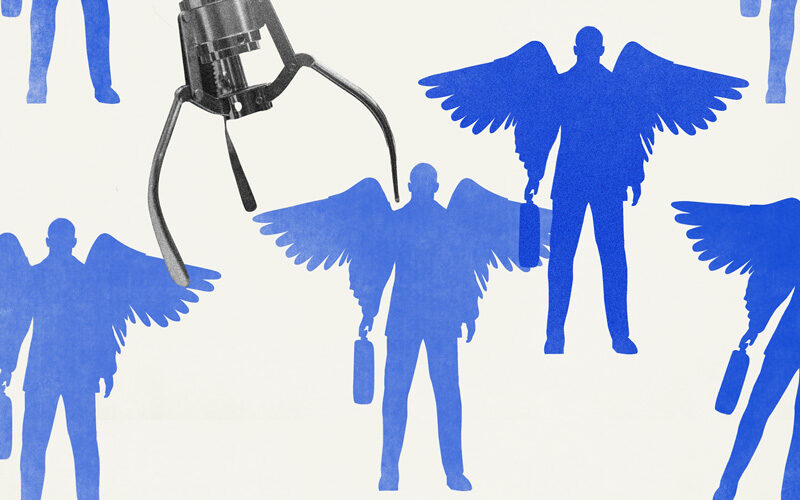When you were a kid, did your head teacher ever tell you you were representing the school on your walk in? Did they dictate what kind of jackets you were allowed to wear on the way, or insist you kept your tie and blazer on until you were home?
As kids, we’d be pretty dismayed to hear the trend continues well into adult life.
In France, a man has just won a lawsuit against the employer who fired him for dodging after work drinks. The message was clear, and a given for most: your employer doesn’t get to dictate what you do in your spare time.
But non-compete clauses banning you from second jobs and side hustles are still present in most employee contracts. Now, legal action is sweeping the corporate world in defence of those topping up their salaries elsewhere.
The issue is cropping up for more and more regular Joes turning to delivery driving or digital freelancing or shift work following the pandemic and entering the COL crisis. But it’s something founders – committed to their startups and side projects but financially unable to quit their day jobs – have been dealing with since business began.
We all love a good story about disgruntled or unfairly dismissed employees winning court cases against their corrupt employers. But it shines a light on a bigger and much less funny issue: people are working second jobs because they can’t afford to live on their day job salaries.
With the cost of living set to increase by 3%, a person earning $50,000 needs to find an extra $1,500 a year just to break even with inflation.
In this climate, multiple income streams don’t just make sense, they are a lifeline.
But are they worth the risk of losing your bread and butter?
What does the law say?
It all comes down to what’s in the employee contract.
Or does it?
Many contracts prohibit a second job, working for a competitor for x years after leaving, working in x industry for x years after leaving. The further along that spectrum you go, the less enforceable they (likely) are. If a contract is so prohibitive you can’t find paying work in your own field, a judge is (again, likely) not going to uphold it.
Perhaps more reasonably, some contracts assert that consent must be given before you can pursue other income. But how enforceable that is depends on the situation, and how far your employer is prepared to take the process.
Where you might find yourself in hot water is where there’s a conflict of interest. Like if you work for a digital design agency and your side hustle is a digital design agency.
If it’s industry adjacent – say you’re starting up a SaaS project that uses AI to replace human designers – the waters are more murky. Unless you’re actively poaching clients. Then it’s pretty clear cut and you might be in violation of a non-compete clause.
Working nine to five… and then some more
Rather than crack down on staff struggling to make ends meet, employers could simply pay them enough to live. Steep rises in the cost of living must be countered by increased wages.
But when employers – and we’re talking about young startups rather than billion dollar conglomerates – are struggling too, it’s easier said than done, leaving it up to the employee to take matters into their own hands.
A don’t ask, don’t tell policy usually works. In the blunt words of Burned Out To Fired Up author Tim Denning: “Don’t ever ask your employer for permission. You’re not their s*x toy.” Again, the tough attitude is appealing, but if you’re violating a consent clause in your employment contract, be prepared for things to get legal.
Being discreet (perhaps even using an alias) and making sure the two worlds don’t clash are usually enough to save you from any legal headache altogether.
But it’s not really about that. It’s about the principle – being forced to hide what you do in your free hours from your employer whose only concern should be your work hours. In fact, it’s even bigger than that. No one working full time should have to work into their evenings or early mornings just to make ends meet.
On top of money worries which are horrible for our health and wellbeing, trying to get a startup off the ground around a day job is prime territory for overexertion, exhaustion, and burnout. Many founders feel it’s just the price they pay – and a means to an end. But getting away with it legally (or stealthily) doesn’t mean you’re getting away with it personally.
Beware the mental implications, set milestones, and make time for sleeping, eating, and socialising. If your response is “I don’t have time!”, you know your extra job is a little too extra.











